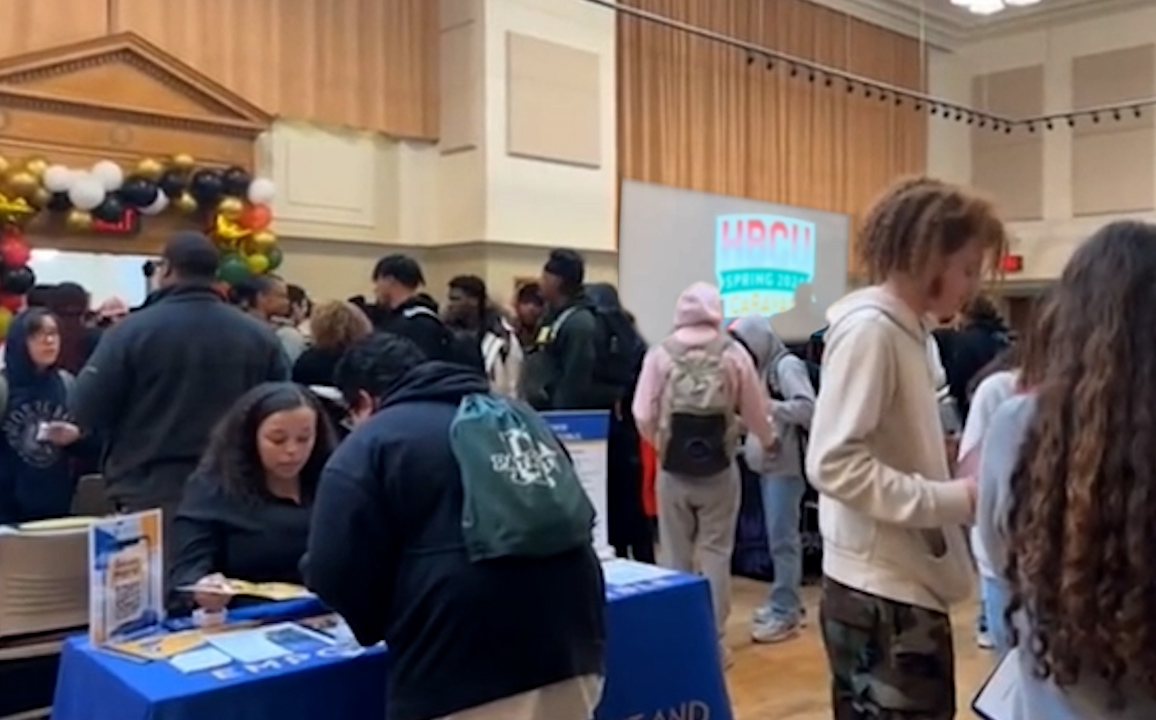Janice Emerzian has a passion for helping those who cannot always help themselves, and with a 25 year history of aiding people with disabilities, she has an impressive amount of experience doing so.
It was not always her plan to work with disabled students, though. “I started out wanting to teach high school chemistry,” said Dr. Emerzian, but after being inadvertently placed in a “special” class, she said she “absolutely fell in love with [disabled] students.”
Dr. Emerzian is the director of the Disabled Students Programs and Services (DSP&S) for the State Center Community College District, including Fresno City College, Reedley College, Clovis Center, Madera Center, Oakhurst Center, the Training Institute, and the Career & Technology Center.
Emerzian has a doctorate in Educational Leadership/Higher Education and a Masters Degree in the area of disability and education, and an undergraduate degree in science.
DSP&S program offers many helpful services for disabled students on campus, from providing translators and note-takers to providing adaptive physical education classes; DSP&S offers help for people with all ranges of disabilities. 10% of the student-body at FCC, approximately 2000 students, have some variety of disabilities, and roughly 250 of these students are in wheelchairs and require wheelchair access.
“Our latest groups [of students] are veterans from Iraq,” said Emerzian. These students come to Fresno City College with a variety of physical disabilities. Emerzian helps to change and adapt DSP&S to meet the needs of each student. DSP&S is “one of the most comprehensive programs [of its kind] in the state,” said Dr. Emerzian.
One of the new programs that DSP&S will be offering is an adaptive physical education class that provides students with exercise while utilizing Nintendo Wii systems, which have been donated to their program. “Some areas need to be reinvented, after so many years, things become stale,” said Dr. Emerzian.
The DSP&S program relies on the support of Dr. Guy F. Lease, the interim president at Fresno City College, who, according to Dr. Emerzian, has been “very responsive and sympathetic.” She hopes that the new college president will be just as responsive.
Students in the DSP&S program have a variety of disabilities, from physical disabilities including deafness and blindness or paralyses, to mental disabilities such as developmental disabilities or learning disabilities. These disabled students are able to achieve GPAs that are as high as, if not higher than, students without disabilities. Dr. Emerzian is very proud of last year’s three Deans Medallion Recipients that were in the DSP&S program. DSP&S also has a high rate of students transferring to four year colleges, and a very high rate of employed students, following graduation from a vocational program.
Emerzian notes a specific student, Michael Janoose, who was able to graduate from his four-year-college and become the Deputy Director of the State Department of Developmental Disabilities. These are just a few examples of the capabilities of disabled students.
Dr. Emerzian says she would like to see this number increase in the years to come, though. She also notes that some disabled students may not have the ability to graduate or go to work, but the DSP&S programs are “able to give them something to wake up for every morning.”
The DSP&S program also offers a Transition to College program in high schools across the valley. This offers resources to make the transition from high school to college an easy one for disabled high school students.
However, due to their lack of available space, funding, and full-time staff members, DSP&S is not able to provide everything that Dr. Emerzian wishes they could. Their funding comes directly from the state of California, which means the Governor’s budget cuts could directly impact their program, and their lack of available space and adaptive classrooms make it even more challenging to provide as much as possible for these students.
Emerzian notes how frustrating, and even dangerous, it is for disabled students to have to navigate across FCC’s sprawling campus, which may include going up and down stairs, in order to utilize the services provided for them. There is currently a plan submitted to move the DSP&S offices and services into one central, and safe, location.
Dr. Emerzian and the DSP&S staff are very excited about this opportunity. “We have been waiting 25 years for something like this,” she said. Many groups around the college are supporting the move of the DSP&S office, and the staff is working with these groups to gain influence on campus. Included in the plans for this move are some adaptive classrooms for students with severe disabilities.
Among the staff of the DSP&S program are three full time counselors, who have some of the highest case loads of their kind. “We need more counselors,” said Dr. Emerzian. There are also 125 student aides, including a variety of interpreters and note takers; who are not paid, but are instead compensated by eligibility for priority registration.
Dr. Emerzian said that “without [DSP&S], students would have no one.” Ashe explained that among everything else that this program provides, the office of the Disabled Students Programs and Services is “the voice for many many students who get stranded and depressed.”



